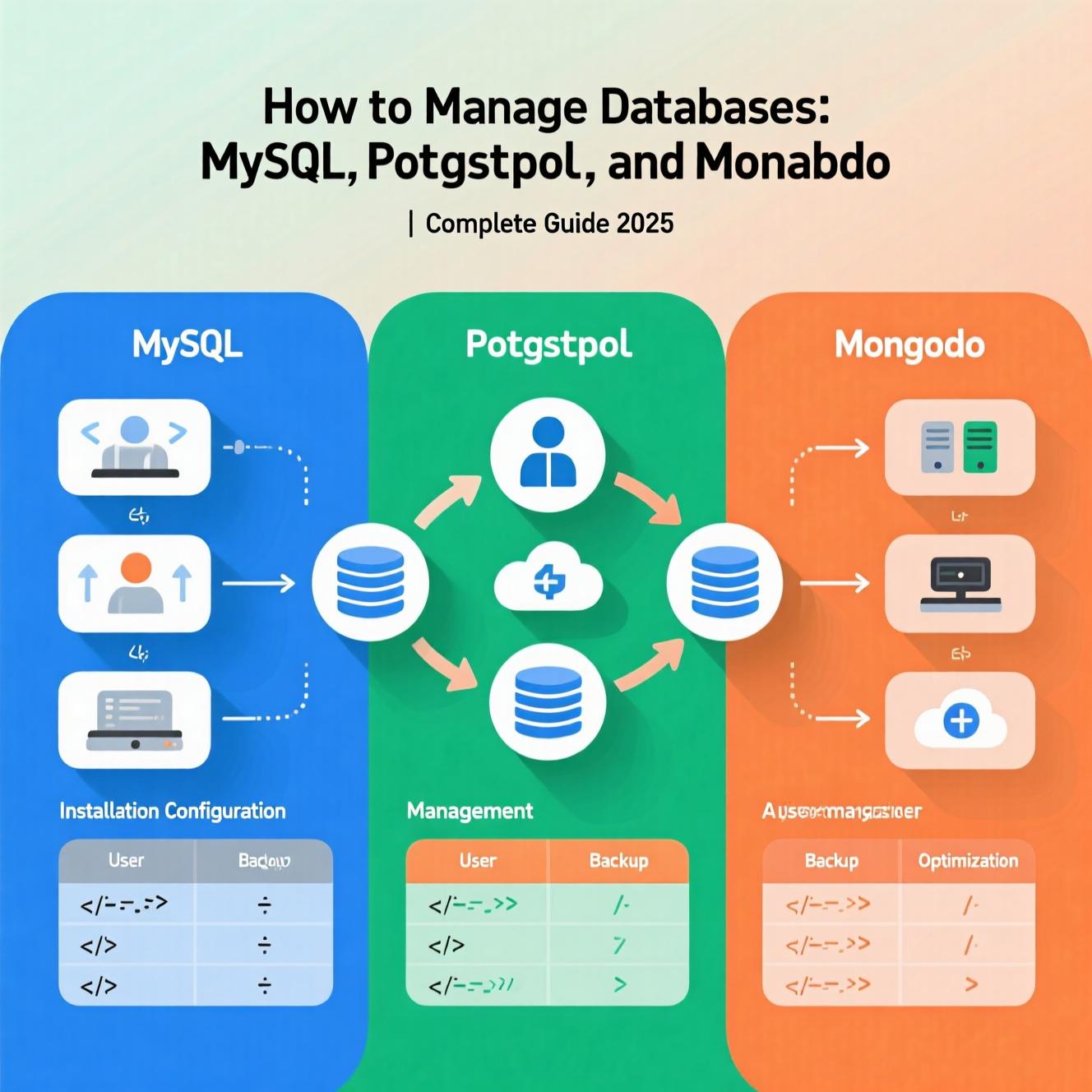How to Manage Databases: MySQL, PostgreSQL, and MongoDB | Complete Guide 2025
In today’s digital transformation era, data is the backbone of every business. Without proper database management, companies may face issues in storage, security, and fast data access.
Thanks to powerful systems like MySQL, PostgreSQL, and MongoDB, managing data has become more efficient, scalable, and secure.
What is Database Management?
Database Management is the process of organizing, storing, and handling data to ensure:
Safe and secure storage.
Easy retrieval when needed.
Reduced errors and duplicates.
Support for analytics and decision-making.
In short, it turns raw data into a valuable tool for business growth and efficiency.
Importance of Database Management in 2025
1. Data is the new fuel for modern businesses.
2. Security is critical to protect customer information.
3. Speed in accessing data enables better decisions.
4. Scalability supports business growth.
5. Integration with systems like CRM and ERP.

SQL vs NoSQL Databases
SQL Databases (Relational):
Based on tables (rows & columns).
Use SQL (Structured Query Language).
Best for high consistency and accuracy.
Examples: MySQL, PostgreSQL, Oracle, SQL Server.
NoSQL Databases (Non-Relational):
Store data in flexible formats like JSON or Graphs.
Schema-less, no fixed tables.
Ideal for big data & modern apps.
Examples: MongoDB, Cassandra, CouchDB, Neo4j.
MySQL: The Developer’s First Choice
What is MySQL?
MySQL is the world’s most popular open-source relational database system, owned by Oracle.
Key Features:
Free and beginner-friendly.
Works across multiple OS platforms.
Supports different storage engines like InnoDB & MyISAM.
Widely used in websites like WordPress & Joomla.
Best Practices for Managing MySQL:
Use phpMyAdmin or MySQL Workbench.
Schedule regular backups.
Optimize queries using indexes.
Monitor performance with Percona Monitoring Tools.
PostgreSQL: The Enterprise Database
What is PostgreSQL?
PostgreSQL is an advanced open-source relational database, known as the best alternative to Oracle and SQL Server.
Key Features:
Supports both SQL & JSON (relational + non-relational).
High performance with large-scale data.
Offers advanced data types and custom indexing.
Perfect for financial & enterprise apps.
Best Practices for Managing PostgreSQL:
Use pgAdmin for a simple GUI.
Create smart indexes to speed up queries.
Manage user permissions for better security.
Enable Backup & Restore strategies.
MongoDB: The Next-Gen NoSQL Database
What is MongoDB?
MongoDB is a NoSQL database that stores data as JSON-like documents, widely used in modern cloud apps and mobile apps.
Key Features:
Highly flexible for unstructured data.
Supports horizontal scalability.
Fast performance for cloud-native apps.
Provides dynamic queries and high availability.
Best Practices for Managing MongoDB:
Use MongoDB Compass (GUI).
Create indexes to boost query speed.
Monitor performance using cloud monitoring tools.
Enable Replication for data security.
Pro Tips for Professional Database Management
1. Secure your data with strong passwords & encryption.
2. Schedule backups to prevent data loss.
3. Optimize performance with indexing & query tuning.
4. Monitor usage to detect unusual activity.
5. Train your team to handle databases effectively.
When to Choose MySQL, PostgreSQL, or MongoDB?
✅ Choose MySQL → For small websites or lightweight apps.
✅ Choose PostgreSQL → For enterprise systems with complex queries.
✅ Choose MongoDB → For big, unstructured data in social or mobile apps.
Conclusion
Whether you are a beginner developer or a large enterprise, database management is now a must-have skill in 2025.
MySQL = simplicity & wide adoption.
PostgreSQL = power & enterprise reliability.
MongoDB = flexibility & scalability.
By following strategies like security, backups, and performance optimization, you ensure your system is efficient, scalable, and future-ready.
database management 2025, MySQL guide, PostgreSQL tutorial, MongoDB best , SQL vs NoSQL, manage databases, MySQL PostgreSQL MongoDB comparison, database securitypractices tips, scalable database systems, database optimization
زرونا علي موقعنا
او تواصل مع الرقم 01001197157